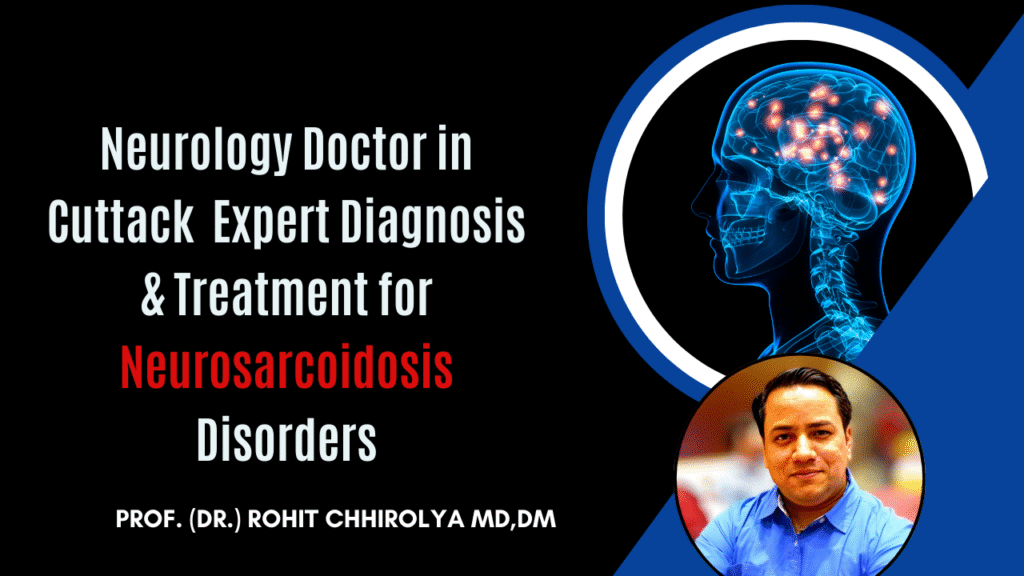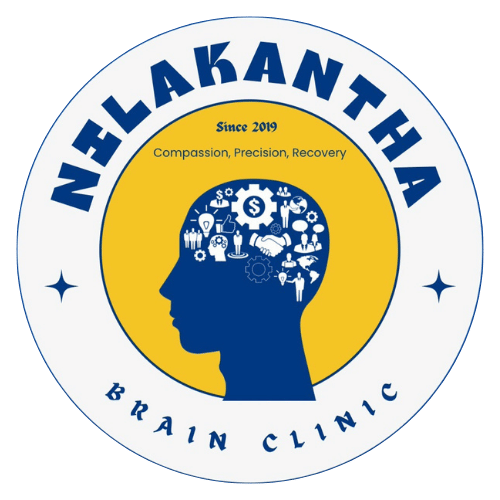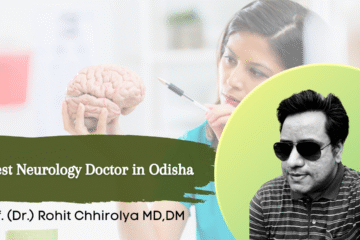Introduction

Neurosarcoidosis is a rare but serious autoimmune disorder where inflammation affects the brain, spinal cord, and nerves. It occurs when the body’s immune system mistakenly attacks its own tissues, forming granulomas (small clumps of inflammatory cells) that can disrupt neurological function. For patients in Odisha, early intervention by the best neurologist in Cuttack is crucial to prevent permanent damage. This guide covers symptoms, diagnostic approaches, and advanced treatments available at Nilakantha Brain Clinic.
What is Neurosarcoidosis?
Neurosarcoidosis is a manifestation of sarcoidosis, a systemic inflammatory condition, that specifically targets the nervous system. It can involve:
- Cranial nerves (e.g., facial palsy, vision loss)
- Brain and spinal cord (headaches, seizures, weakness)
- Peripheral nerves (numbness, tingling)
Key Facts:
- 5–15% of sarcoidosis patients develop neurological involvement.
- Early diagnosis prevents irreversible nerve damage.
- Multidisciplinary care is essential for optimal outcomes.
Symptoms: Recognizing the Warning Signs
Symptoms vary based on the affected area:
Common Neurological Symptoms:
- Headaches (persistent and severe)
- Facial weakness or drooping (Bell’s palsy)
- Vision changes (blurriness, double vision)
- Seizures
- Balance issues and dizziness
- Cognitive changes (memory loss, confusion)
Systemic Symptoms:
- Fatigue
- Unexplained fever
- Skin rashes or lesions
Urgent Red Flags:
- Sudden vision loss
- Difficulty walking or speaking
- Severe headaches with nausea
Act Now: Consult a neuro doctor near me if you experience these symptoms.
Causes and Risk Factors
The exact cause of neurosarcoidosis is unknown, but potential triggers include:
- Genetic predisposition
- Environmental factors (e.g., infections, toxins)
- Immune system dysfunction
High-Risk Groups:
- Adults aged 20–40
- Individuals with a history of systemic sarcoidosis
- Those with family history of autoimmune disorders
Diagnosis: How Cuttack’s Best Neurologist Detects Neurosarcoidosis
Diagnosing neurosarcoidosis requires a combination of tests:
- MRI with Contrast: Highlights inflammation in the brain/nerves.
- Lumbar Puncture (Spinal Tap): Analyzes CSF for inflammatory markers.
- Blood Tests: Check elevated ACE levels (angiotensin-converting enzyme).
- Biopsy: Confirms granulomas in affected tissues (e.g., nerve, skin).
- PET Scan: Identifies systemic inflammation.
Why Choose Nilakantha Brain Clinic?
Dr. Rohit Chhirolya, a top neurologist in Cuttack, uses advanced imaging and collaboration with rheumatologists for accurate diagnosis.
Treatment Options
1. Corticosteroids
- Prednisone reduces inflammation and suppresses immune response.
2. Immunosuppressive Therapies
- Methotrexate, Azathioprine for steroid-resistant cases.
3. Biologic Agents
- Infliximab, Adalimumab target specific immune pathways.
4. Symptom Management
- Antiseizure medications
- Physical therapy for weakness/balance issues
- Vision rehabilitation
Recovery Timeline:
- Acute symptoms often improve within 2–4 weeks of starting treatment.
- Long-term management may be needed to prevent relapses.
Expert Insight:
“Early treatment is key to preventing disability. Customized plans yield the best results.”
– Dr. Rohit Chhirolya, Cuttack’s leading neurologist
Why Consult a Neurologist in Cuttack?
Neurosarcoidosis mimics other conditions (e.g., MS, tumors). A best neurologist near me ensures:
- Accurate diagnosis via advanced testing.
- Personalized treatment plans.
- Coordinated care with other specialists.
Finding the Best Neurologist in Cuttack
Key Criteria:
- Experience with Rare Disorders: 10+ neurosarcoidosis cases.
- Multidisciplinary Network: Collaboration with rheumatologists/pulmonologists.
- Rehab Support: Physical/speech therapy referrals.
Cuttack’s Top Choice:
- Dr. Rohit Chhirolya, DM (Neurology)
- Clinic: Nilakantha Brain Clinic
- Expertise: Neuroinflammatory disorders, autoimmune neurology.
- Contact: 📞 7985022365 | 🌐 Schedule Consultation
External Links:
- Daily tips: Instagram
FAQs
Q1: Is neurosarcoidosis curable?
A: While not curable, it is manageable with treatment. Most patients achieve remission.
Q2: Can neurosarcoidosis cause permanent damage?
A: Yes, if untreated. Early care from the best neurologist in Cuttack minimizes risks.
Q3: How is neurosarcoidosis different from MS?
A: Neurosarcoidosis involves granulomas; MS involves demyelination. Diagnosis requires expert evaluation.
Q4: Are there lifestyle changes that help?
A: Stress management, balanced nutrition, and avoiding infections support treatment.
Q5: Where can I find a ‘cuttack neurology doctor list’?
A: Visit Nilakantha Brain Clinic for expert referrals.
Q6: Can neurosarcoidosis go into remission?
A: Yes, with proper treatment, many patients achieve long-term remission. However, relapses can occur, so ongoing monitoring by the best neurologist in Cuttack is essential.
Q7: Is neurosarcoidosis hereditary?
A: While not directly inherited, there may be a genetic predisposition. Family history of autoimmune or inflammatory conditions can increase risk.
Q8: Can stress trigger neurosarcoidosis flares?
A: Yes, stress is a known trigger for disease flares. Stress management techniques such as meditation, yoga, and counseling are often recommended as part of comprehensive care.
Q9: How does neurosarcoidosis affect vision?
A: It can cause optic neuritis (inflammation of the optic nerve), leading to blurred vision, eye pain, or even vision loss if not treated promptly.
Q10: Are there any new treatments for neurosarcoidosis?
A: Research is ongoing. Biologic therapies such as TNF inhibitors (e.g., infliximab) are showing promise for treatment-resistant cases.
Q11: Can neurosarcoidosis be misdiagnosed?
A: Yes, it is often mistaken for multiple sclerosis, brain tumors, or other neurological conditions. Advanced testing and evaluation by an experienced neurologist are critical for accurate diagnosis.
Q12: Is exercise safe for neurosarcoidosis patients?
A: Moderate exercise is generally beneficial, but patients should consult their neurologist for personalized recommendations, especially during flares.
Q13: Can diet influence neurosarcoidosis?
A: An anti-inflammatory diet (rich in fruits, vegetables, and omega-3s) may help manage symptoms, though it is not a substitute for medical treatment.
Q14: What is the role of steroids in treatment?
A: Steroids (e.g., prednisone) are often used to reduce inflammation quickly, but long-term use requires careful management due to potential side effects.
Q15: How often should I see my neurologist?
A: This depends on disease activity. Regular follow-ups (every 3-6 months) are typical for stable patients, with more frequent visits during flares.
Q16: Can neurosarcoidosis affect mental health?
A: Yes, the condition can cause anxiety, depression, or cognitive changes. Integrated care including mental health support is important.
Q17: Are there support groups for neurosarcoidosis patients?
A: Yes, organizations like the Foundation for Sarcoidosis Research offer resources and community support.
Q18: What should I do if I experience new symptoms?
A: Contact your neurologist immediately. Early intervention can prevent complications.
Q19: Can neurosarcoidosis cause seizures?
A: Yes, inflammation in the brain can trigger seizures. Anti-epileptic medications may be prescribed if this occurs.
Q20: Where can I find a neurosarcoidosis specialist in Cuttack?
A: Dr. Rohit Chhirolya at Nilakantha Brain Clinic specializes in complex neuroinflammatory disorders. Call 7985022365 for an appointment.
Key Takeaways:
- Early diagnosis and treatment are critical to prevent permanent neurological damage.
- Multidisciplinary care (neurologist, rheumatologist, ophthalmologist) offers the best outcomes.
- Lifestyle modifications and stress management can support medical treatment.
For more information or to schedule a consultation, contact:
Nilakantha Brain Clinic
📞 7985022365 | 🌐 https://nilakanthabrainclinic.com
Follow for ongoing support and education:
Conclusion: Don’t Let Inflammation Control Your Life
Neurosarcoidosis is a complex condition, but with expert care, patients can lead full lives. If you suspect symptoms, seek immediate evaluation from Cuttack’s top neurologist, Dr. Rohit Chhirolya, at Nilakantha Brain Clinic.
Take Action Today:
📞 Call 7985022365
🌐 Book Online: Nilakantha Brain Clinic
Stay Connected:
- Join health discussions: Facebook


